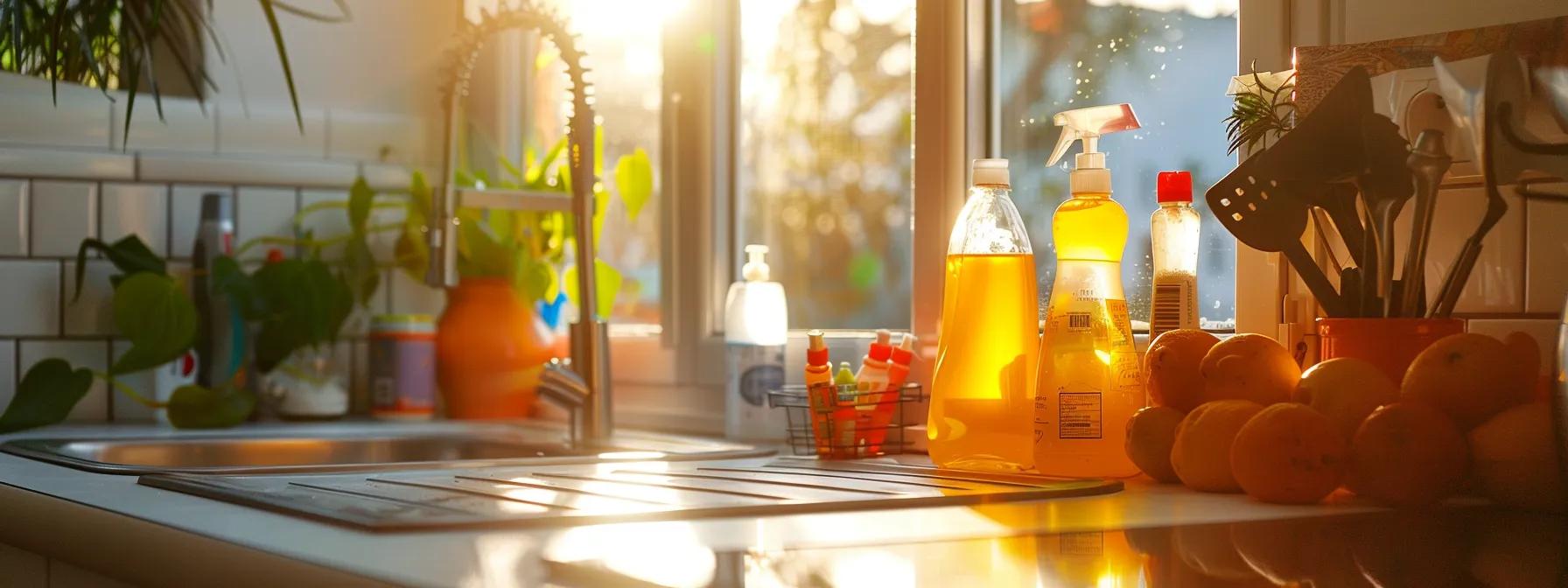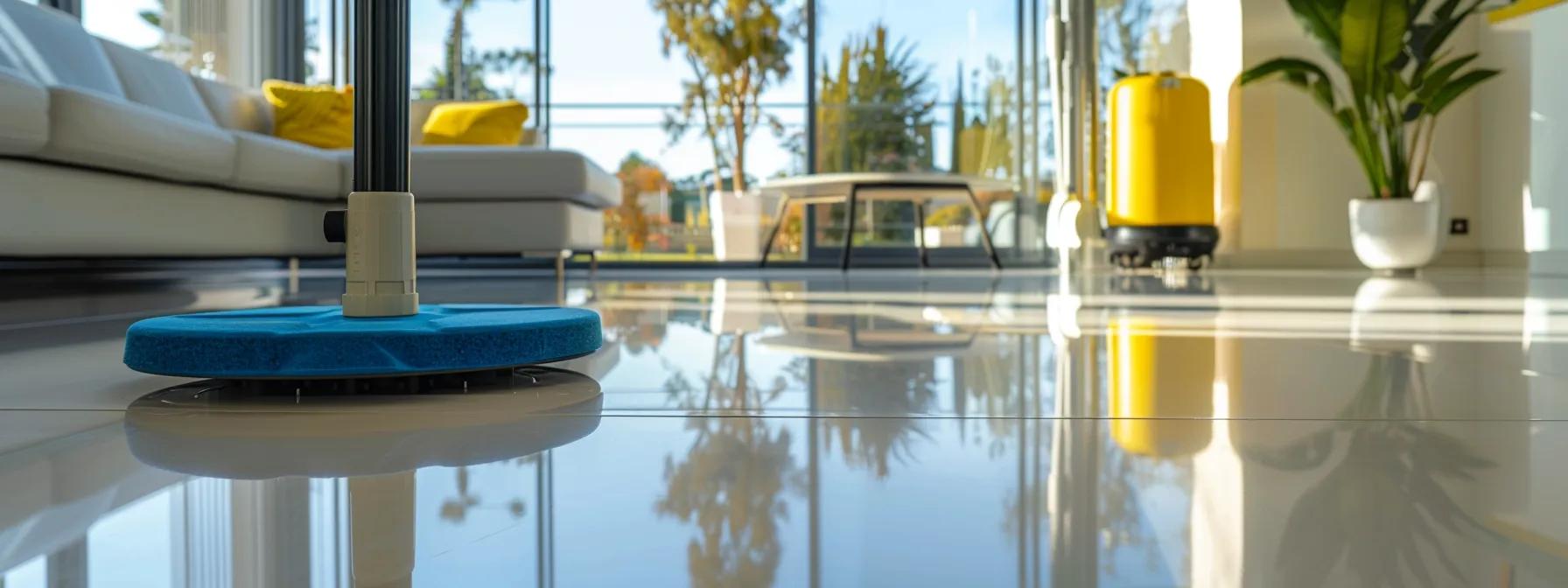Are stubborn stains diminishing the appearance of bathroom grout? Maintaining clean grout can be difficult, especially when water and dirt accumulate over time. This article explores the different types of grout, common issues homeowners encounter, and effective cleaning solutions using suitable cleaning agents. By understanding these aspects, readers can achieve a spotless and hygienic bathroom. Learn how to address grout problems efficiently and keep spaces looking pristine.
Key Takeaways
- choosing the right grout type ensures durable and easy-to-maintain surfaces
- regular cleaning with proper solutions maintains grout hygiene and extends its lifespan
- natural cleaning methods offer eco-friendly options for effective grout maintenance
- professional services are recommended for tough stains and grout restoration
- sealing grout annually protects against moisture and prevents mold growth
Understanding the Different Types of Grout
Grout selection is crucial for maintaining clean and durable floors. Cementitious grout offers versatility and strength, making it suitable for various surfaces. Epoxy grout provides superior resistance to stains and chemicals, ideal for high-traffic areas. Furan resin grout excels in industrial settings due to its exceptional durability. Additionally, choosing between unsanded and sanded grout enhances the cleaning process using tools like brushes and mops with soap or bleach.
Cementitious Grout and Its Properties
Cementitious grout is widely favored in kitchen settings for its durability and ability to resist dirt accumulation. Its robust composition ensures that it maintains structural integrity, even in high-traffic areas prone to spills and frequent cleaning.
Maintaining cementitious grout involves regular cleaning with solutions like vinegar and dishwashing liquid to effectively break down grime. For more persistent stains, hydrogen peroxide can be used to ensure the grout remains spotless and hygienic:
| Cleaning Agent | Usage | Effectiveness |
|---|---|---|
| Vinegar | Natural disinfectant for daily cleaning | High |
| Dishwashing Liquid | Effective against grease and light dirt | Moderate |
| Hydrogen Peroxide | Tackles stubborn stains and mold | Very High |
Epoxy Grout: Benefits and Limitations
Epoxy grout stands out for its exceptional resistance to stains and chemicals, making it an ideal choice for showers and other high-moisture areas. Its non-porous nature prevents dust and grime from settling, ensuring that surfaces remain cleaner for longer periods. Additionally, epoxy grout simplifies the cleaning process, as standard cleaners are often sufficient to maintain its pristine appearance.
However, epoxy grout can present certain limitations, such as a higher initial cost compared to traditional cementitious grout. Its application requires specialized techniques and tools, and repairs can be challenging, often necessitating the use of strong cleaners like hydrogen peroxide to effectively remove stubborn stains. Moreover, maintaining the grout’s integrity may require regular use of a vacuum cleaner to manage any dust that accumulates around the joints.
Furan Resin Grout: Ideal Applications
Furan resin grout is highly suitable for areas where mold resistance is crucial, such as around sinks and laundry rooms. Its superior chemical resistance ensures that grout lines remain intact and free from mold growth, even in environments with high moisture levels.
Additionally, furan resin grout is ideal for tiled surfaces in commercial settings where durability is essential. Its robust composition withstands heavy foot traffic and exposure to cleaning agents, making it a reliable choice for maintaining pristine tile and carpeted areas.
Advantages of Using Unsanded vs. Sanded Grout
Choosing between unsanded and sanded grout depends on the type of porcelain tiles and the location of installation. Unsanded grout is ideal for narrow grout lines typically found around toilets and glass surfaces, as it provides a smooth finish without scratching delicate materials. This makes it perfect for bathrooms and areas with intricate tile patterns where precision is essential.
Sanded grout, on the other hand, is suitable for wider grout lines commonly used in high-traffic areas. Its textured surface enhances the cleaning process, allowing tools like toothbrushes and mops to effectively remove dirt and grime. Additionally, sanded grout offers increased durability, making it a reliable choice for floors and countertops that require frequent maintenance.
| Grout Type | Ideal For | Cleaning Tools |
|---|---|---|
| Unsanded Grout | Narrow lines, delicate surfaces like glass and porcelain | Soft brushes, gentle cleaning solutions |
| Sanded Grout | Wider lines, high-traffic areas | Toothbrushes, mops with soap or bleach |
Common Issues With Grout
Common grout issues include discoloration and stains, crumbling or cracking, mildew and mold growth, and water damage. Addressing these problems effectively requires a comprehensive checklist, appropriate disinfectants, and tools like microfiber cloths. The following sections explore each issue in detail and provide practical cleaning solutions for maintaining surfaces such as marble.
Grout Discoloration and Stains
Grout discoloration often occurs due to excessive humidity and moisture buildup, which can penetrate through porous surfaces like granite countertops. Using steam cleaning methods can effectively remove stains and prevent further damage:
| Factor | Impact | Solution |
|---|---|---|
| High Humidity | Promotes mold growth and discoloration | Use dehumidifiers and ensure proper ventilation |
| Moisture Exposure | Leads to staining and weakening grout lines | Apply sealants and use steam cleaning regularly |
| Surface Types | Granite and other porous materials can absorb moisture | Clean promptly and use appropriate protective measures |
Odors from stained grout can affect the surrounding furniture and overall indoor air quality. Implementing effective cleaning solutions helps eliminate these smells and maintains a fresh environment.
Crumbling or Cracked Grout
Crumbling or cracked grout compromises the integrity of ceramic tiles, allowing moisture to seep through and cause further damage. Regular housekeeping practices, such as promptly addressing spills and using appropriate cleaning mixtures, can prevent grout deterioration.
When grout begins to crumble or crack, it often requires more intensive care:
- Use a specialized grout repair mixture to fill in gaps and restore strength.
- Employ a vacuum to remove debris before applying new grout.
- Ensure proper ventilation to allow oxygen to aid in the drying and curing process.
Mildew and Mold Growth in Grout
Mildew and mold thrive in grout due to constant moisture exposure from appliances like washing machines and dishwashers. In concrete tiled areas, the porous nature of grout allows mold spores to settle and grow, creating unsightly and potentially harmful conditions.
Regular cleaning with effective detergents prevents mildew buildup in grout, while baking soda solutions can neutralize odors and inhibit mold growth. Implementing these practices ensures that grout remains free from mold and maintains a healthy environment.
Water Damage and Its Effects on Grout
Water damage can severely weaken grout, leading to cracks and increased susceptibility to grease and other stains. In Perth, homeowners often use sponges and chlorine-based cleaners to manage moisture, but improper application can exacerbate grout deterioration.
Regular maintenance with appropriate tools like towels and gentle cleaning agents helps prevent water from penetrating grout lines. Alliance Cleaning Services in Perth recommends using the right balance of cleaning solutions to protect grout integrity and extend the lifespan of tiled surfaces.
Effective Cleaning Solutions for Grout
Effective grout cleaning in various rooms, including garages for car storage, involves natural methods like spray bottle mixtures with vinegar or mild acids. Selecting the right commercial grout cleaners ensures safety and efficiency. Utilizing a steam cleaner provides deep cleaning, while proper techniques help prevent grout damage. For expert advice, customers can email Alliance Cleaning Services.
Natural Cleaning Methods for Grout
Natural cleaning methods provide an eco-friendly approach to grout maintenance, ensuring cleanliness without the use of harsh chemicals. These methods are effective for removing oil residues from countertops and restoring the appearance of upholstery in homes across Canberra:
- Using a vinegar and water solution for routine cleaning
- Applying baking soda paste to tackle stubborn stains
- Leveraging lemon juice to naturally disinfect grout lines
Regular use of these natural solutions not only preserves the longevity of grout but also promotes a healthier living environment by minimizing exposure to potentially harmful substances.
Commercial Grout Cleaners: What to Look For
When selecting commercial grout cleaners in cities like Adelaide and Melbourne, it is essential to choose products that offer powerful stain removal without damaging surfaces. High-quality cleaners should effectively tackle grease from refrigerators and other kitchen appliances, ensuring that grout lines remain pristine and hygienic. Alliance Cleaning Services recommends using specialized cleaners that are proven to work in high-traffic commercial environments, providing reliable results that meet the rigorous demands of businesses in Sydney and beyond.
Additionally, businesses in Melbourne and Adelaide should consider the ease of application and safety of the grout cleaners they use. Opting for eco-friendly solutions minimizes the risk of harmful residues, making them safe for both employees and customers. By selecting the right commercial grout cleaners, businesses can maintain a clean and professional appearance, enhancing the overall environment and ensuring long-lasting cleanliness for areas exposed to frequent use, such as around refrigerators and other essential equipment.
Using a Steam Cleaner for Deep Cleaning
Using a steam cleaner in Australia provides an efficient method for deep cleaning grout, effectively removing soap scum and embedded debris without the use of harsh chemicals.
This technology is versatile enough for various environments, from residential kitchens to commercial car washes, ensuring grout remains hygienic and spotless:
- Breaks down soap scum and stains
- Removes stubborn debris like paper residue
- Sanitizes surfaces for a healthier environment
Preventing Grout Damage During Cleaning
When cleaning grout, it’s essential to use the right tools to prevent damage. Avoid harsh alkali cleaners that can weaken grout lines and use a soft broom to gently remove debris. In Brisbane, Alliance Cleaning Services recommends the following practices:
- Use pH-neutral cleaners to protect grout integrity.
- Opt for soft-bristled brooms or brushes to avoid scratching.
- Inspect elbow joints regularly for signs of wear.
Proper cleaning techniques help eliminate bacteria without compromising grout. Regular maintenance ensures that grout remains strong and free from mold or mildew, maintaining a healthy environment for your home or business.
Step-by-Step Guide to Cleaning Dirty Grout
Before initiating grout cleaning, it’s essential to prepare the area by removing obstacles such as clothing and ensuring appliances like the oven and ceiling fan are clear. Selecting the appropriate cleaning solution, whether using paper towels for delicate surfaces or avoiding abrasive agents, enhances effectiveness. Proper application techniques and thorough rinsing maintain grout integrity and cleanliness.
Preparing the Area for Cleaning
Before starting the grout cleaning process, Alliance Cleaning Services recommends clearing the area of any obstacles, including removing mirrors and securing advertising materials that might be nearby. Ensuring proper ventilation by opening windows or using fans helps to disperse cleaning agents, creating a safer and more comfortable environment for effective cleaning.
In leased properties, it is crucial to protect fixtures and furnishings by covering them or relocating them temporarily. Utilizing tools like a squeegee can help manage excess water and prevent damage to surfaces, ensuring that the cleaning process is smooth and that the workspace remains pristine and free from unwanted marks or residues.
Choosing the Right Cleaning Solution
Choosing the appropriate cleaning solution is essential for effective stain removal and floor cleaning, particularly for porcelain tile surfaces in Hobart homes. Mild, pH-balanced detergents work well for regular maintenance, ensuring grout lines remain clean without causing damage. For tougher stains, specialized cleaners designed for porcelain tiles can provide the necessary strength to restore grout to its original condition.
In areas near beds or high-traffic zones, selecting a safe and durable cleaning agent is crucial to maintain both hygiene and the integrity of the grout. Eco-friendly and non-toxic solutions are highly recommended, as they effectively clean while promoting a healthier living environment. Professional cleaning services in Hobart often advise using tailored cleaning products to address specific challenges, ensuring long-lasting and pristine grout maintenance.
Below chart compares the cleaning solution effectiveness. This helps you choose the best cleaning solutoin option based on your preference. The main things to note is higher the effectiveness gives better results plus less labour
Cleaning Solution Comparison Guide
- Highly effective against tough stains and mold
- Quick action with minimal scrubbing required
- Safe for most grout types when properly diluted
- Chemical-free deep cleaning
- Effective sanitization of surfaces
- Ideal for sensitive environments
- Eco-friendly and budget-friendly option
- Safe for most surfaces when diluted
- Natural disinfecting properties
- Gentle abrasive action for stubborn stains
- Non-toxic and environmentally friendly
- Can be combined with other natural cleaners
Application Techniques for Maximum Effectiveness
To achieve maximum effectiveness when cleaning grout in areas such as laundry rooms or kitchens, it is essential to select the appropriate cleaning solutions tailored to the specific surface materials like limestone or terrazzo. Utilizing pH-balanced cleaners ensures that the grout is thoroughly cleaned without causing damage to the surrounding cement-based tiles. For stainless steel fixtures and appliances, gentle yet effective cleaning agents prevent corrosion while maintaining grout integrity.
Applying cleaning techniques with precision is crucial for maintaining grout lines in high-traffic areas. Using soft-bristled brushes made of stainless steel can help gently remove stubborn stains from terrazzo or limestone surfaces without scratching. Additionally, employing steam cleaning methods can penetrate deep into cementitious grout, effectively eliminating mold and mildew while preserving the overall appearance of the tiled surfaces.
Rinsing and Maintaining Clean Grout
After cleaning the grout, it is essential to thoroughly rinse the area to remove any residual cleaning agents. Excess moisture can lead to mold growth and compromise hygiene standards:
- Use clean water to rinse grout lines thoroughly.
- Dry the area with microfiber towels to prevent moisture buildup.
- Inspect and clean around light fixtures and ceilings to ensure all moisture is eliminated.
Maintaining clean grout involves regular upkeep to safeguard against future issues. Protect leather surfaces and ensure that moisture does not accumulate near grout lines by implementing consistent cleaning routines.
Best Practices for Grout Maintenance
Implementing routine cleaning schedules with soft-bristle brushes and protective gloves helps maintain grout integrity. Tips for keeping grout looking new include avoiding abrasive tools like sandpaper on delicate surfaces such as slate. Proper sealing prevents harmful chemical reactions, while avoiding common maintenance mistakes ensures long-lasting, vibrant grout.
Routine Cleaning Schedules to Follow
Establishing a routine cleaning schedule using pH-balanced liquid cleaners ensures grout remains free from stains and deterioration. Regular maintenance prevents the buildup of dirt and grime, making everyday cleaning tasks more manageable and preserving the longevity of tiled surfaces.
Incorporating spring cleaning into the schedule allows for a thorough refresh, utilizing steel brushes to effectively remove embedded debris. Additionally, drying grout lines with newspaper after cleaning helps absorb excess moisture, minimizing the risk of mold and mildew growth.
Tips for Keeping Grout Looking New
Regularly applying a high-quality sealant protects grout from moisture and stains, ensuring it stays vibrant and durable over time. Incorporating natural cleaners, such as lemon juice, can effectively brighten grout lines without the need for harsh chemicals:
- Apply sealant every six months to maintain grout integrity.
- Use lemon juice mixed with baking soda for a safe, natural cleaning solution.
- Gently scrub grout lines with a soft brush using moderate pressure.
When performing grout maintenance, it is essential to wear personal protective equipment to safeguard against potential irritants. Additionally, avoid using paint near grout areas, as it can lead to discoloration and hinder the effectiveness of cleaning solutions.
Sealing Grout: When and How
Sealing grout is essential after installation and should be repeated annually to protect against cooking spills and moisture, which can compromise health by fostering mold growth. Utilizing environmentally friendly sealants ensures that the process is safe for both the household and the surrounding environment.
To seal grout effectively, professionals recommend using a high-quality scrubber to evenly apply the sealant, ensuring deep penetration into the grout lines. Choosing non-toxic, environmentally friendly products not only preserves the integrity of the grout but also maintains a healthy living space by minimizing exposure to harmful chemicals.
Avoiding Common Grout Maintenance Mistakes
One common mistake in grout maintenance is the improper use of epoxy-based cleaners without the necessary tools. Applying epoxy without the right applicator can lead to uneven coverage and damage to the grout lines, ultimately reducing their lifespan. Professionals recommend using specialized tools to ensure epoxy is applied smoothly, preserving both the grout’s integrity and the indoor air quality by preventing the release of harmful fumes.
Another frequent error involves neglecting to protect grout from food-related stains and spills. Failing to promptly clean up food debris can result in stubborn stains and mold growth, which deteriorate grout over time. Utilizing wax-treated surfaces and appropriate cleaning agents helps maintain grout cleanliness and prevents contamination, thereby enhancing indoor air quality and ensuring a healthier living environment.
FAQ About Grout and Cleaning Solutions
This FAQ section addresses key grout maintenance questions, such as how often to clean pavers and the possibility of restoring old grout.
It also explores effective methods to prevent mildew in spaces like the bedroom and examines the use of DIY solutions, including sodium carbonate, circular motion techniques, and specialized machines.
How Often Should Grout Be Cleaned?
Regular grout cleaning is recommended every one to two years to maintain the appearance and integrity of tiled surfaces. High-traffic areas and mosaic tile installations may require more frequent attention to prevent soil accumulation and staining. Using a mild foam-based solution can effectively lift dirt without damaging the grout.
Incorporating essential oils into the cleaning regimen can enhance the disinfecting properties of the solution, providing a fresh scent and added protection against mold and mildew. Consistent maintenance not only preserves the visual appeal of grout but also extends its lifespan, ensuring a clean and healthy environment.
Can You Restore Old Grout?
Restoring old grout is achievable through professional cleaning services that utilize advanced techniques such as steam cleaning and grout restoration gels. In the United States, specialized cleaning services offer solutions tailored to rejuvenate grout around fireplaces and other high-traffic areas, ensuring longevity and aesthetic appeal.
Homeowners can enhance the restoration process by following expert recommendations, which include:
- Applying grout restoration gel to seal and protect grout lines
- Using steam cleaning to deeply penetrate and eliminate stubborn stains
- Scheduling regular maintenance with a cleaning service to preserve grout integrity
What’s the Best Way to Prevent Mildew?
Preventing mildew in tile grout involves regular home cleaning and consistent maintenance using appropriate cleaners. Implementing a routine ensures that moisture does not accumulate, creating an environment where mildew can thrive:
| Action | Purpose | Frequency |
|---|---|---|
| Use Anti-Mildew Cleaners | Remove mold spores and prevent growth | Weekly |
| Ensure Proper Ventilation | Reduce humidity levels | Daily |
| Seal Tile Grout | Protect grout from moisture | Annually |
Additionally, maintaining a dry and well-ventilated space helps remove excess moisture that mildew needs to grow. Combining these practices with the right cleaning products ensures tile grout remains mold-free and extends its lifespan.
Are DIY Solutions Effective for Grout Cleaning?
DIY grout cleaning can be a practical solution for homeowners addressing minor stains and routine upkeep. Utilizing common house cleaning products such as baking soda and vinegar allows individuals to effectively manage light discoloration and surface grime without the need for professional intervention. However, for more stubborn stains or extensive cleaning needs, professional cleaning services may provide superior results:
- Deep stain removal with specialized equipment
- Expert application of protective sealants
- Comprehensive commercial cleaning solutions for businesses
While DIY methods are suitable for everyday maintenance, commercial cleaning and lease cleaning services offer advanced techniques that ensure grout remains clean and durable in high-traffic areas. These professional services not only enhance the appearance of tiled surfaces but also contribute to a healthier environment by effectively eliminating mold and mildew. Additionally, integrating services like window cleaning can provide a comprehensive approach to maintaining overall cleanliness and hygiene in both residential and commercial properties.
Frequently Asked Questions
What are the various types of grout available?
Grout types include sanded, unsanded, epoxy, and furan.
- Sanded Grout: Best for larger joints.
- Unsanded Grout: Ideal for narrow gaps.
Epoxy grout offers superior durability and stain resistance, suitable for high-traffic areas. Furan grout is chemical-resistant, making it perfect for industrial applications.
What Common Problems Occur with Grout?
Grout frequently suffers from staining and discoloration caused by spills, moisture, and daily wear. These issues can make tiled surfaces look dull and unkempt, necessitating regular cleaning and maintenance to preserve their appearance.
Cracking or crumbling grout is another common problem that compromises the integrity of tiled areas. Damaged grout allows water to seep in, fostering mold and mildew growth, which can affect both hygiene and the longevity of the surfaces.
How can I effectively clean my grout?
To effectively clean grout, start by removing loose dirt with a vacuum or brush. Apply a mixture of baking soda and water to the grout lines and let it sit for several minutes to loosen stains.
Next, scrub the grout using a stiff brush or an appropriate cleaning tool. For tough stains, use an oxygen-based cleaner or a steam cleaner. Rinse thoroughly with clean water and allow the area to dry completely to maintain cleanliness.
What steps should I follow to clean dirty grout?
Cleaning dirty grout involves several essential steps to maintain its appearance and hygiene. Alliance Cleaning Services recommends starting by removing surface dirt and debris to ensure effective cleaning.
- Apply a specialized grout cleaner to the stained areas.
- Scrub the grout lines using a suitable brush.
- Rinse the tiles and grout thoroughly with water.
- Allow the grout to dry completely to prevent mildew.
How Can I Maintain Grout to Keep It Clean?
Regular maintenance is essential for keeping grout clean. Sweep or vacuum tiles frequently to remove dirt and debris. Promptly wipe up spills to prevent stains and mold growth. Use mild, grout-specific cleaners to maintain its appearance and durability.
Periodically sealing grout lines helps protect against moisture and stains. For deep cleaning, consider professional internal tiles and grout cleaning services. Alliance Cleaning Services provides expert solutions tailored to your needs, ensuring your grout stays spotless and long-lasting.
Conclusion
Understanding the different types of grout is essential for maintaining durable and clean tiled surfaces. Identifying and addressing common grout issues, such as discoloration, cracking, and mold growth, ensures the structural integrity and appearance of any space. Implementing effective cleaning solutions and regular maintenance practices preserves grout quality and extends its lifespan. By comprehensively understanding grout types, potential problems, and appropriate cleaning methods, homeowners and businesses can achieve healthier and more visually appealing environments.




